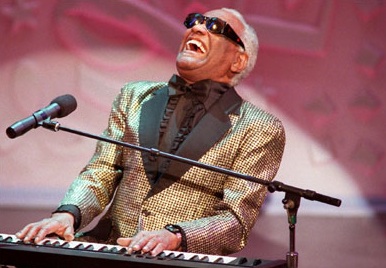Robert Leroy Johnson (May 8, 1911 – August 16, 1938) was an American blues singer-songwriter and musician. His landmark recordings in 1936 and 1937 display a combination of singing, guitar skills, and songwriting talent that has influenced later generations of musicians. Johnson’s shadowy and poorly documented life and death at age 27 have given rise to much legend. One Faustian myth says that he sold his soul to the devil at a local crossroads of Mississippi highways to achieve success. As an itinerant performer who played mostly on street corners, in juke joints, and at Saturday night dances, Johnson had little commercial success or public recognition in his lifetime. I guess if he made a deal with the devil, it was a bad deal or a trick…….. 🙂
After the reissue of his recordings in 1961, on the LP King of the Delta Blues Singers, his work reached a wider national audience. Johnson is now recognized as a master of the blues, particularly of the Mississippi Delta blues style. He is credited by many rock musicians as an important influence; the blues and rock musician Eric Clapton has called Johnson “the most important blues singer that ever lived
The blues has deep roots in American history, particularly African-American history. The blues originated on Southern plantations in the 19th Century. Its inventors were slaves, ex-slaves and the descendants of slaves—African-American sharecroppers who sang as they toiled in the cotton and vegetable fields.
Despite their conceptual differences, gospel, the Sunday morning music of the church, and blues, the Saturday night music of the juke joint, share some of the same roots, influences and musical traits. Many African singers have performed in both fields. Rev. C.L. Franklin, who preached at St. Peter’s Rock M.B. Influenced gospel, R&B and blues artists, his daughters Aretha, Erma and Carolyn became noted soul singers after starting out singing in church.
Gospel music and the blues share a unique relationship, reflecting “two sides of the same coin”. African American theologian James Cone has written, “ . . . the blues and the spirituals flow from the same bedrock of experience, and neither is an adequate interpretation of black life without the other.”
Spirituals and hymns preceded gospel, a genre that evolved through the work of Thomas A. Dorsey, a former blues singer and composer often called the “father of gospel music.” The influence between religious music and blues has long been mutual. While both genres have their own distinct characteristics, many gospel songs have been transformed into blues or soul songs, and vice versa, by simply changing a few words in the lyrics.
Countless blues, R&B and soul performers started out singing in church. B.B. King, Denise LaSalle, Charley Patton, Son House, Muddy Waters, Bukka White, Memphis Minnie, Mississippi Fred McDowell, Lonnie Pitchford, Otha Turner and Leo “Bud” Welch are among the many Mississippi blues artists who have also recorded gospel and spirituals.
Clarksdale-born Sam Cooke, famed for his gospel singing with the Soul Stirrers, made a controversial “crossover” into rhythm & blues to become a pop icon, while others, such as Gatemouth Moore and Pops Staples, left the blues behind to become preachers or gospel singers. Otis Clay was among those who maintained a foot in both worlds, continuing to sing both sacred and secular music. Blues and gospel singers often recorded for the same companies (including Chess, Vee-Jay, Excello, Peacock, Trumpet, J-V-B, Specialty, Malaco, Savoy and Jewel), socialized with each other, performed in the same communities, and during the segregation area shared similar touring experiences when many accommodations and facilities were closed to African Americans.
Blues legend Bobby Bland credited the vocal style of Reverend C.L. Franklin as a major inspiration, particularly Franklin’s recorded sermon “Eagle Stirreth Her Nest.” In 1958 Franklin officiated at the wedding of B.B. King, who called Franklin “my main minister.” Unlike some of his congregation members, Franklin saw no conflict between blues and the church, and once recalled, “I always liked the blues.” B.B. King, who sang gospel on the radio in the Delta in the 1940s, once said, “I’ve heard that black folks are supposed to have this big conflict between singing for the world and singing for God. Some of them surely are divided. I am not … I believe all music talent comes from God as a way to express beauty and human emotion.”
When it comes right down to it, the making of good and beautiful music is not the sole prerogative of Christians while the making of ugly music is left to the wicked. As much as some Christians try to make this out to be the case, it’s just not true. No one can say that certain kinds of music are good or Christian, and other kinds of music are “the devil’s music”. Music is morally neutral. There is no such thing as moral music or immoral music. It all depends what you do with it that makes it like that. The real issue is with us, not with the music.
The late Larry Norman, who was a close friend of my family and I had a unique way of expressing his views on Gospel music and rock and roll.
I was the tour manager and later the manager for the Gospel band “Petra”. You talk about stirring it up with the religious leaders back in the day – one of their original hits was “God gave rock and roll to you”. Today Petra is well accepted by most of the mainstream church along with DC Talk and many other Gospel rock bands that were once considered controversial.

